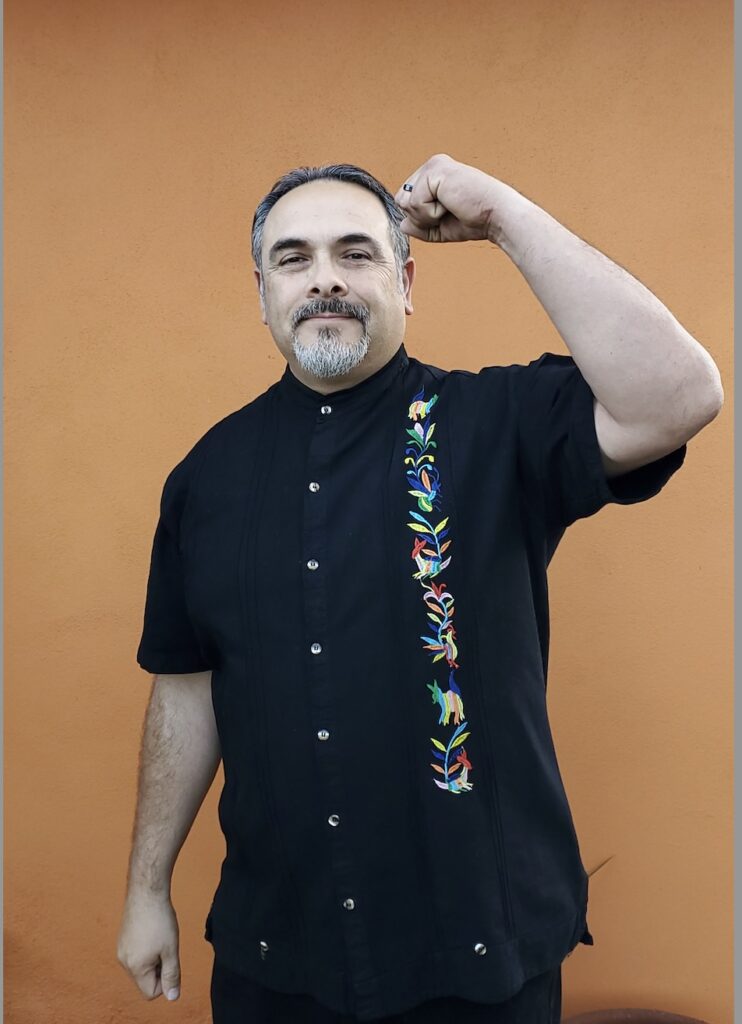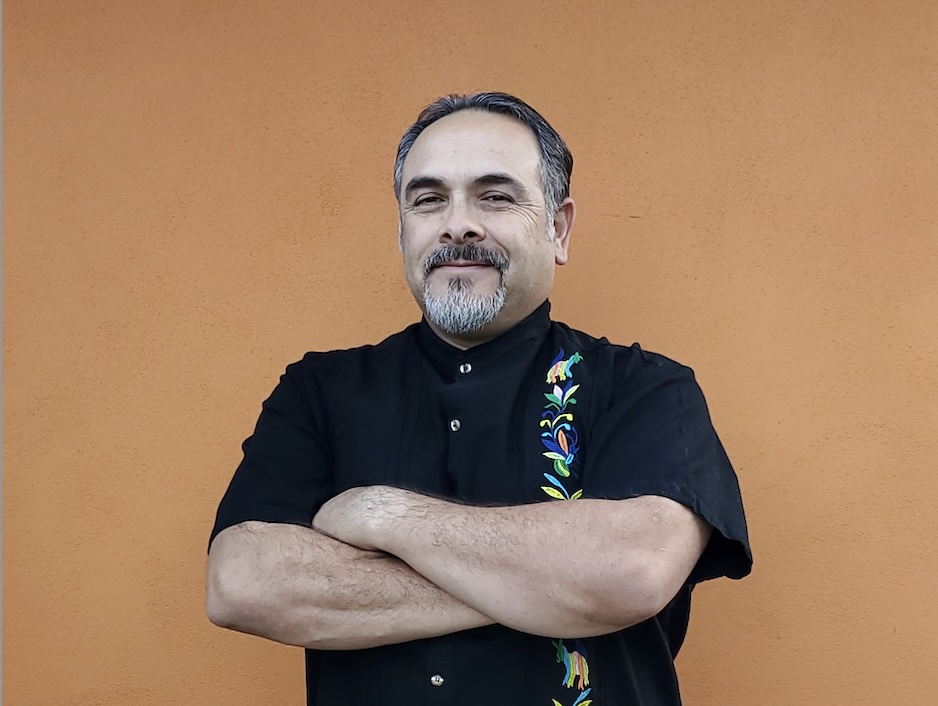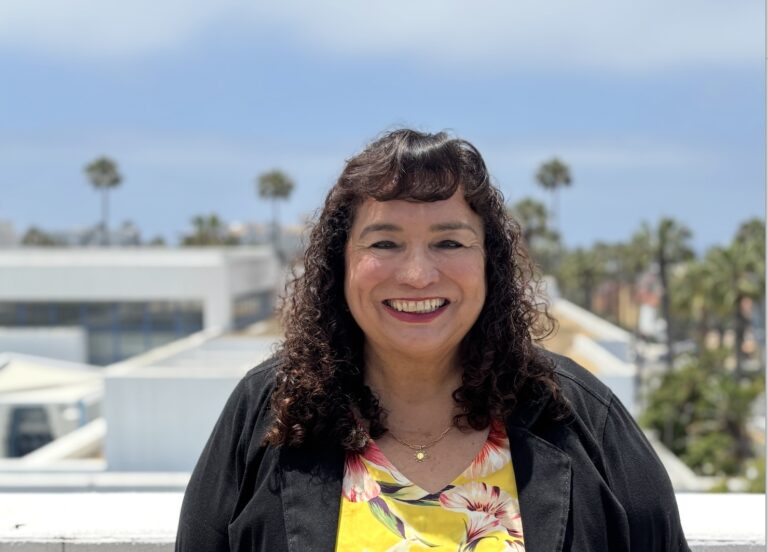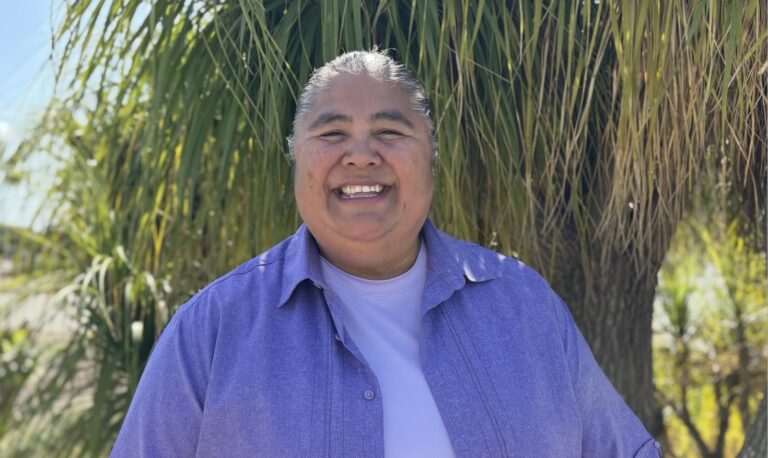By Melanie Slone
When a Latino Fallbrook resident fought for a park in his community, a white supremacist in the town asked for him to be shot.
That Latino resident was Ricardo Quintana Favela. When he was a youth in the 1980s, the Ku Klux Klan was very powerful in Fallbrook.
Under the leadership of Tom Metzger, the Klan found so much support that it evolved into a neo-Nazi movement, says Ricardo. “As you can imagine, the Mexican community was targeted by this group.” Metzger, who lived in Fallbrook, became the Klan leader in the state of California and a Grand Dragon of the white supremacist group.
Ricardo, a community activist and the first Latino member of the school board in Fallbrook, credits this environment of his youth for making him into who he is today. “It pushed me forward,” he says, leading him to give back.
Get Educated and Come Back
“My story is the story of someone that comes from a farmworker community,” says Ricardo, who was born in Fallbrook to a migrant family that worked in the avocado and citrus industries.
“I remember fourth of July as a kid in junior high, hearing ‘White Power!’ being yelled out from the bar.”
He says the police called him a “gang member” even though he was never part of a gang. “I was in situations where we were being shot at…That’s life in the barrio.”
Very few Latinos made it to college back then. “By the time I got to my senior year, I remember seeing who didn’t finish,” says Ricardo. “The dropout rate was very high for Latinos in high school. I think it was above 50%.”
Yet, he says, “I was able to navigate that well because our community has a tremendous amount of dignity and respect for itself.”
Ricardo remembers the message he heard from everyone: “Get educated, go to college, but come back to your community and serve…because this community needs you…That was the one message that really stuck with me and shaped who I am,” he says.
Ricardo knew it was important to do well in school. His peers formed United Pride and other resistance organizations and held study groups “about our history, the history of Mexican people,” he says. “I learned about the rich history that our communities come from.”
These critical thinking skills and support from his family and the community pushed him to get his college degree. Years later, he went back for his master’s degree in Latin American Studies at UC San Diego, focusing his thesis on Latino history in the Fallbrook area from the 1970s on.
“I realized that our community was making history, but it wasn’t being documented—the fact that we were standing up to this racist environment.”
He believes people don’t realize how many Latinos there are in Fallbrook. In fact, the town is over 50% Latino. “I had to make sure that this history wouldn’t get lost,” he says.
Now, he writes about history as it’s being made and teaches Chicano Studies at the community college level.

Activism & Politics
Ricardo remembers the struggle in Fallbrook all the way back to the 1980s. Besides fighting racist attitudes, Ricardo and his peers had to defend themselves from all kinds of attacks and abuses. “The struggle here in Fallbrook has been intergenerational,” he says.
He says the town did everything it could to keep Latinos out of local government. About 15 years ago, the community advocated for a park in their neighborhood. He was appointed to the planning board.
“We faced opposition from people who publicly tried to stop the building of the park by saying that the Mexican community doesn’t deserve a park because it would be filled with gang members and prostitutes” Ricardo tells us.
But the resistance didn’t stop there. “When the local newspaper ran a story about the new park, a white supremacist friend of Tom Metzger said that I should be shot in the park by the local sheriffs,” says Ricardo. The local newspaper published the comment. “This was my introduction to public service.”
Ricardo’s daughter was only two at the time, and he was worried about the wellbeing of his family. Yet, he kept fighting. “I was willing to face any repercussions for being an unapologetic advocate for our working families,” he says. The park was built, and it’s been a beautiful addition for Fallbrook and that neighborhood.”
Ten years later, another opportunity arose. The California Voting Rights Act states that at-large elections are discriminatory.
At that time, Fallbrook still held at-large elections, which means a seat represents an entire jurisdiction (like the town of Fallbrook) and gets voted on by everyone in that town. If town members do not want to support minority candidates, their voice drowns out these candidates, even in areas of the town that are majority Latino. “Fallbrook was one of the last communities in San Diego County to move to a by-district election system,” says Ricardo.
To comply with the California Voting Rights Act, Fallbrook had to get input from the affected community, the Latino community, to get someone from that district elected. “The school board had their own idea of what our district should look like,” says Ricardo.
“We told them what our district looks like. They ignored us.” So, the team challenged the school board at the county level, which forced the Fallbrook School District to use the map presented by the district representatives.
Once that battle was won, it was time for someone from the district to run for office in the 2020 election. “The opposition that we saw from the governing board at that time and the cabinet at that time, it was not good,” he says. “That’s what motivated me to run for school board.”
Ricardo credits a group effort for the success. “We had some of the brightest, most engaged folks from our community involved,” he says, including Oscar Caralampio for the high school board, Stephanie Ortiz for the health district, and Cindy Acosta for the fire protection board.
“We did this as a collective effort,” says Ricardo. “And that’s what really made the difference over previous efforts” to become the first Latino elected officials in Fallbrook.

VOCES
Growing up between Fallbrook and Valley Center, Ricardo says youth community organizations shaped him. “It takes a collective effort to build power for our communities,” he says.
Today, he helps lead VOCES obreros, campesinos y estudiantes, a community activist and human-rights organization. VOCES engages in local electoral issues, immigrant rights, health issues, history, and culture, “…supporting our communities but with a solid base of advocating for our human rights.”
VOCES was a beacon for the community during Covid, making sure “the vaccine was made available to the most vulnerable populations, which was our farmworker communities.” It works closely with allies in the North County such as Universidad Popular, Alianza Comunitaria, and the Fallbrook Democratic Club. “The strength and power of community is immense,” he says. “We have to continue harnessing that power.”
Harnessing that Power
Ricardo encourages others to form a strong community and support base. “I encourage folks to get involved, to try to organize in their communities,” he says.
“Serving on local committees and government, I’ve seen how things work against our community from the inside. It can be frustrating and disheartening to see how our community is disregarded, but that makes it all the more important for us to stand up and get into positions of leadership…Get involved, get active, build community. It needs to be built. It doesn’t just happen.”
He reminds us of the power behind Maria Muñoz’s scholarship program for Latino students in the 1970s. “That’s why I encourage more than anything the power of community. Get involved, get active. Get educated but come back. Build something. Help build a foundation for our neighbors, for our people.”
Today, Metzger and the Klan are no longer in the Fallbrook community. But the struggle goes on. “Our community needs to continue standing up for itself…responding to the anti-immigration climate,” Ricardo believes. “We need to continue building from the ground up.”
That’s where the real power is, he says. “The voice of parents that are involved in the parent committees is tremendous. Don’t look at your local board members as the end all. People need to get involved in any way they can.”
Today’s climate won’t stop him, he says. “One of the best things we could do to counter what was happening nationally was try to do what we could to protect our communities on a local level.”
He urges others to take a stand. “Stand up for yourselves. If we’re not at the table of decision making, nobody else is advocating for us.”




